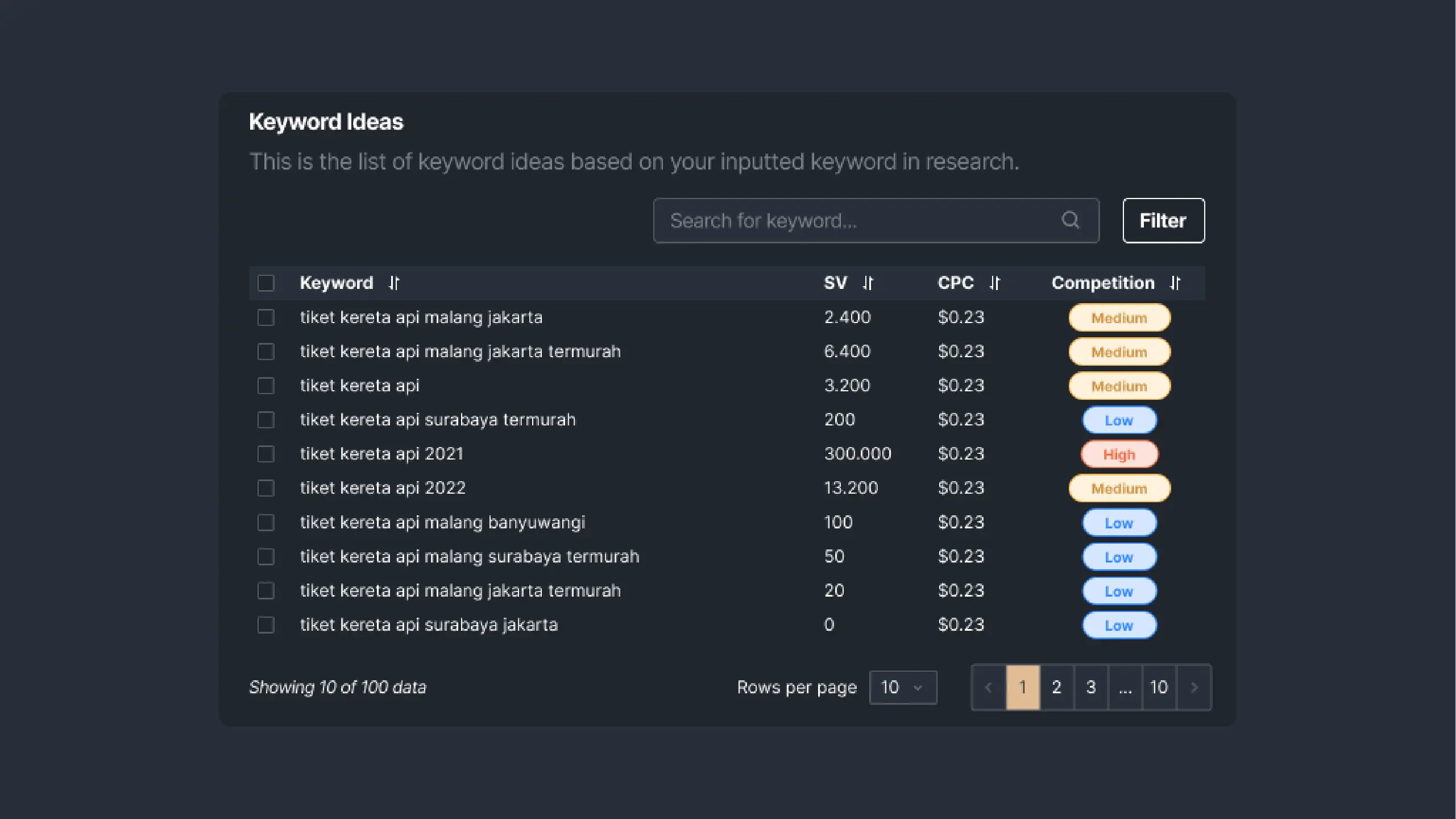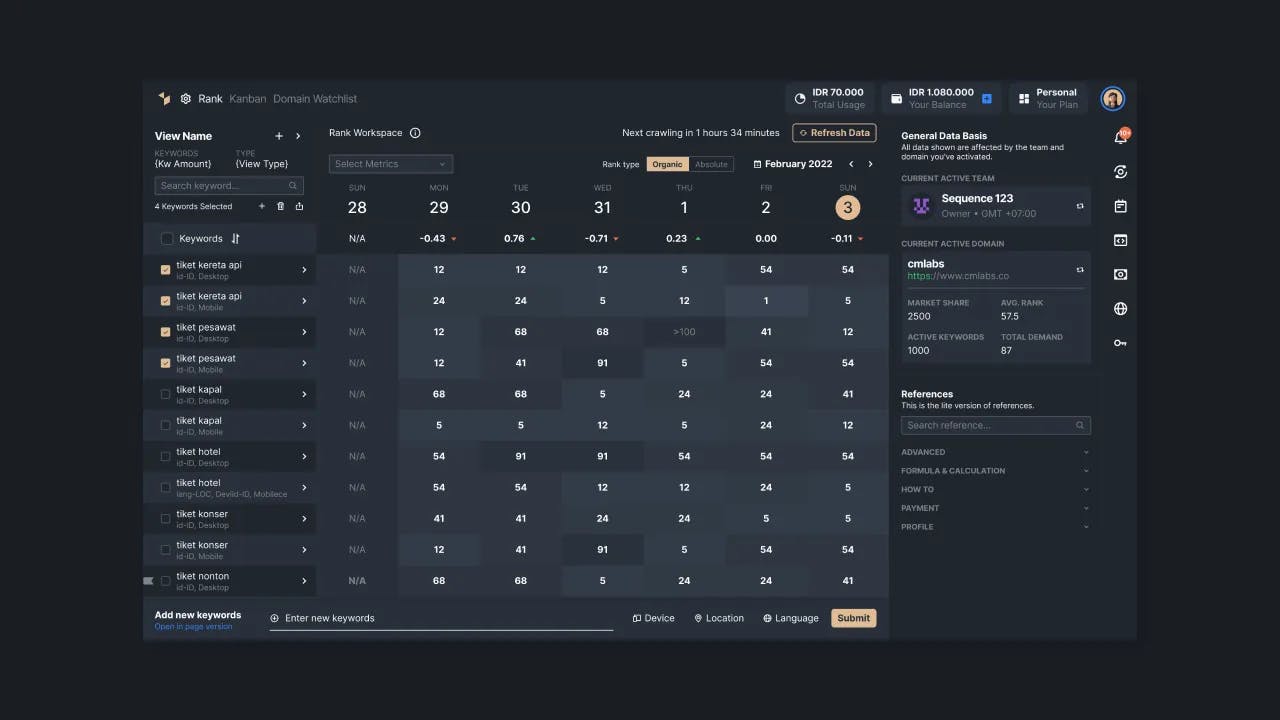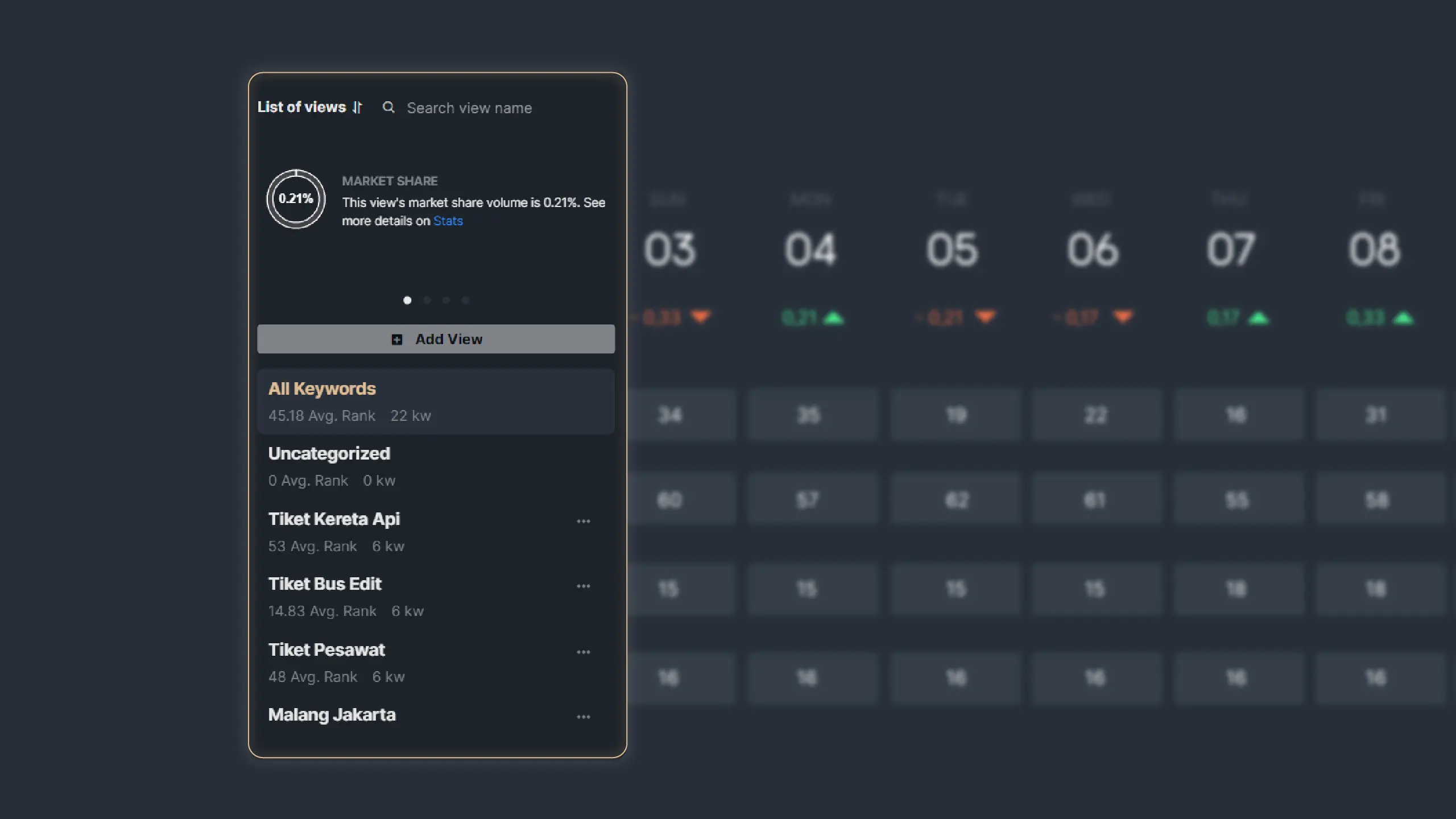Every business wants to reach their customer, especially the ones in their area. This kind of customer should be optimally reached since they can be a source of quality and loyal consumers. Thus, conducting local keyword research is important to reach them digitally.
With the power of search engines, a business can target their reach to the right audience in their area. How? The answer is through local SEO. Local SEO enables businesses to connect more easily by showing their online presence.
In this article, we will make sure that you understand what is local keyword research, its importance, the metrics, and how to track their ranking with an SEO automation tool. Here is the full explanation.
What Is Local Keyword?
A local keyword refers to a specific term or phrase that includes geographical identifiers, such as city names, neighborhood names, or even regional terms. These keywords are essential for businesses or websites that operate within a specific geographic location. For example, if you're a bakery in Malang, the term "best cupcakes in Malang" would be considered a local keyword.
Even if the local keyword identifiers can be explicit, Google will still use the users' location to serve the search result. For example, if users type “best barbershop near here” Google will most likely show the local results upon the other even though the user did not type the location identifiers.
Why Local Keyword Is Important?
Local keywords hold a unique significance in the world of SEO, particularly for businesses targeting a local audience. To make it clear, here are some of the important local keywords for business:
1. Geographic Relevance
Incorporating local keywords into your content makes it clear to search engines and users that your business is relevant to a specific location. This can greatly improve your website's visibility in local search results.
2. Targeting Local Audience
Local keywords help you attract users who are actively seeking products or services in their vicinity. When someone searches for "coffee shop near me," using such local keywords can ensure your business appears in the search results.
3. Reduced Competition
Unlike broad and generic keywords, local keywords often face less competition. This provides businesses with a better chance of ranking higher in local search results.
4. Enhanced User Experience
When users find results that match their immediate needs, they are more likely to engage with the content and convert into customers. Using local keywords helps improve the user experience and increase the likelihood of conversions.
5. Voice Search Optimization
With the rise of voice search, people are more likely to use natural language and ask location-specific queries. Having optimized local keywords can significantly improve your chances of being featured in voice search results.
6. Mobile Search
Many local searches are performed on mobile devices by users on the go. Using local keywords ensures that your website is visible to potential customers looking for nearby solutions on their smartphones.
7. Building Local Authority
Optimizing for local keywords can lead to higher local search rankings, establishing your business as an authority in your area and fostering trust among local customers.
Whether you're a neighborhood restaurant, a boutique shop, or a service provider, understanding and optimizing local keywords can significantly impact your SEO strategy and drive tangible results.
How to Do Local Keyword Research
Here's a step-by-step guide to help you conduct effective local keyword research:
1. Understand Your Business and Audience
Before diving into keyword research, it's essential to have a clear understanding of your business, products, services, and your target local audience. Define your unique selling points and the value you offer to customers.
2. Brainstorm Local Keywords
Start by brainstorming a list of local keywords that are relevant to your business. Think about the products or services you offer and how people might search for them within your specific location. Consider variations, synonyms, and long-tail keywords.
3. Use Local Modifiers
Incorporate local modifiers into your keywords. These can include city names, neighborhood names, state abbreviations, or even nearby landmarks. For example, if you're a plumbing service in Surabaya, you might consider "emergency plumber in Surabaya" or "Surabaya plumbing services."
4. Use Google Autocomplete and Related Searches
Type your initial keywords into Google's search bar and observe the autocomplete suggestions and related search terms at the bottom of the page. This can provide insights into what users commonly search for in relation to your keywords.
5. Competitor Analysis
Analyze the websites of your local competitors. Identify the keywords they are targeting and ranking for. The competitor analysis can provide inspiration for keywords you may not have considered. This way, you can outrun your competitors.
6. Use Keyword Research Tools
There are several keyword research tools available that can help you find relevant local keywords. Sequence Stats is one of the SEO tools with a Keyword Ideas feature to search for local SEO keywords.
This tool provides data on search volume, competition, CPC, related keywords, and other valuable metrics. With this tool, you can set a target location, so that the system can show the local results.

Picture 1: Keyword Ideas feature.
8. Prioritize Keywords
Evaluate the keywords you've gathered based on relevance, search volume, and competition. Prioritize keywords that are not only relevant to your business but also have a decent search volume and manageable competition.
9. Create Content
The last step is to distribute the keywords you previously gathered into high-quality content. Through content, you will be connected to users who search for your business with diverse terms.
Make sure that the content can capture relevant keywords while serving the user with useful information. Don't forget to give a call to action clearly at the strategic place in the article. This way, you can guide the users to your product page or any page you want the users to be.
How to Track Local Keyword Ranking
Know, that if you have created high-quality content, the next thing you need to do is ensure the content performance. You need to know the ranking and how the content hits the target local market.
Tracking local keyword ranking is beneficial for business. The data gathered from tracking activity can be used to analyze and evaluate the current strategy and adjust it as needed. So, here is how to track local keywords using Sequence Stats.
Log in to your Sequence Stats account. Or create if you do not have one. Then, finish the setup including the domain, the location, and so on.
Next, add keywords to the Sequence Stats Rank Tracker. You will requested to decide the market setting such as location and the language of the keywords.

Picture 2: Add keyword to Sequence Stats.
3. Wait for the crawler to load the data of your local keywords. Next, the system will show the ranking position of your keywords.

Picture 3: Rank Dashboard in Sequence Stats.
4. If you want to observe the keyword ranking separately such as the local keyword, the product keyword, the service keywords, or others, you can create a View to group them. This way, you will be able to analyze and get the data based on a certain group of keywords.

Picture 4: List of Views.
By using Sequence Stats to track your local keywords, you will gain daily insight into those keywords and determine the optimization strategy needed.
All in all, doing local keyword research is important for all businesses with geographical target markets. Thus, it cannot be overgeneralized into just keywords. So, do your research thoroughly and get the best keyword benefits for your business. Register to Sequence Stats and enjoy a free trial!